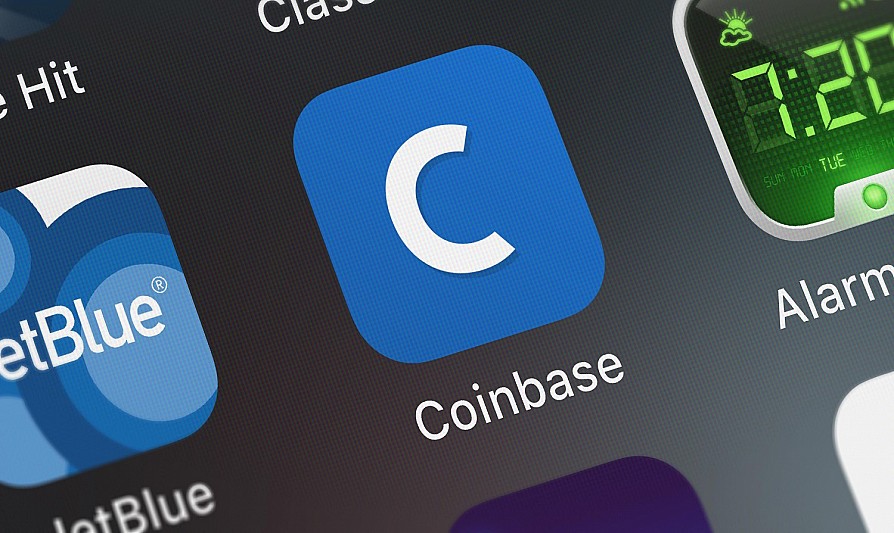Coinbase Reports $1.4 Billion Q2 Revenue, Sees Growth in Transactions
02.08.2024 8:00 2 min. read Alexander Stefanov
Coinbase reported total revenue of $1.4 billion for the second quarter of this year.
Analysts from Oppenheimer, Owen Lau and Guru Sidaarth, had anticipated revenue of $1.36 billion, a decrease from the $1.6 billion reported in the first quarter.
Transaction revenue dropped to $781 million, marking a 27% decrease from the previous quarter, while subscriptions and services revenue totaled $600 million. Coinbase also noted a significant 300% increase in transactions on its Base platform.
In a shareholder letter, Coinbase highlighted significant progress in regulatory clarity, which it views as crucial for both the company and the broader cryptocurrency sector. The company noted that the Stand With Crypto initiative has garnered over 1.3 million supporters, influencing both political parties and generating momentum for advancing crypto legislation.
Looking ahead, Coinbase forecasts third-quarter subscription and services revenue to be between $530 million and $600 million. It also anticipates transaction expenses to be in the mid-teens percentage-wise of net revenue, with technology and development, along with general and administrative costs, expected to rise to $700-$750 million due to stock-based compensation.
Oppenheimer analysts believe that regulatory advancements and potential inclusion in the S&P 500 might be underestimated in Coinbase’s long-term outlook. They view recent selling pressure from entities like Mt. Gox as a minor factor in daily volume and see it as a potential buying opportunity for Coinbase. Oppenheimer maintains an outperform rating on Coinbase with a price target of $280.
-
1
Trump Imposes 50% Tariff on Brazil: Political Tensions and Censorship at the Center
10.07.2025 7:00 2 min. read -
2
Key Crypto Events to Watch in the Next Months
20.07.2025 22:00 2 min. read -
3
USA Imposes Tariffs on Multiple Countries: How the Crypto Market Could React
08.07.2025 8:30 2 min. read -
4
UAE Regulators Dismiss Toncoin Residency Rumors
07.07.2025 11:12 2 min. read -
5
Ripple Selects BNY Mellon as Custodian for RLUSD Stablecoin Reserves
09.07.2025 15:28 2 min. read
Two Upcoming Decisions Could Shake Crypto Markets This Week
The final days of July could bring critical developments that reshape investor sentiment and influence the next leg of the crypto market’s trend.
Winklevoss Slams JPMorgan for Blocking Gemini’s Banking Access
Tyler Winklevoss, co-founder of crypto exchange Gemini, has accused JPMorgan of retaliating against the platform by freezing its effort to restore banking services.
Robert Kiyosaki Warns: ETFs Aren’t The Real Thing
Renowned author and financial educator Robert Kiyosaki has issued a word of caution to everyday investors relying too heavily on exchange-traded funds (ETFs).
Bitwise CIO: The Four-Year Crypto Cycle is Breaking Down
The classic four-year crypto market cycle—long driven by Bitcoin halvings and boom-bust investor behavior—is losing relevance, according to Bitwise CIO Matt Hougan.
-
1
Trump Imposes 50% Tariff on Brazil: Political Tensions and Censorship at the Center
10.07.2025 7:00 2 min. read -
2
Key Crypto Events to Watch in the Next Months
20.07.2025 22:00 2 min. read -
3
USA Imposes Tariffs on Multiple Countries: How the Crypto Market Could React
08.07.2025 8:30 2 min. read -
4
UAE Regulators Dismiss Toncoin Residency Rumors
07.07.2025 11:12 2 min. read -
5
Ripple Selects BNY Mellon as Custodian for RLUSD Stablecoin Reserves
09.07.2025 15:28 2 min. read


